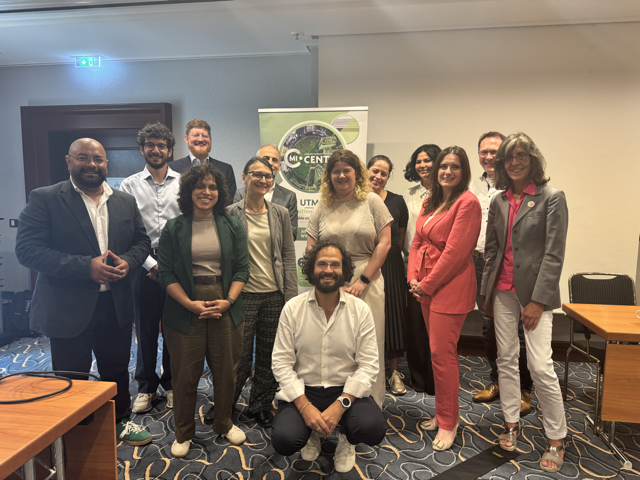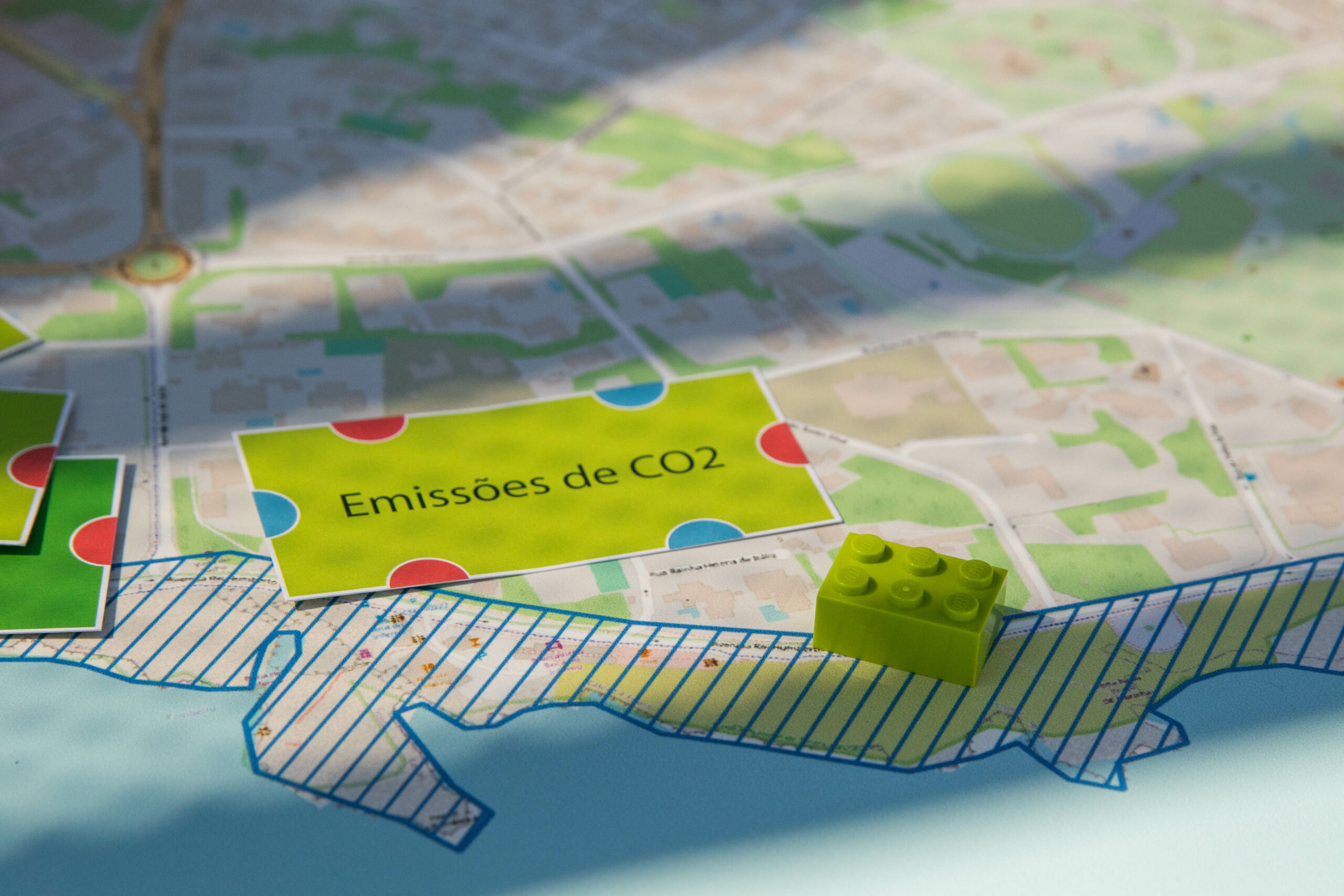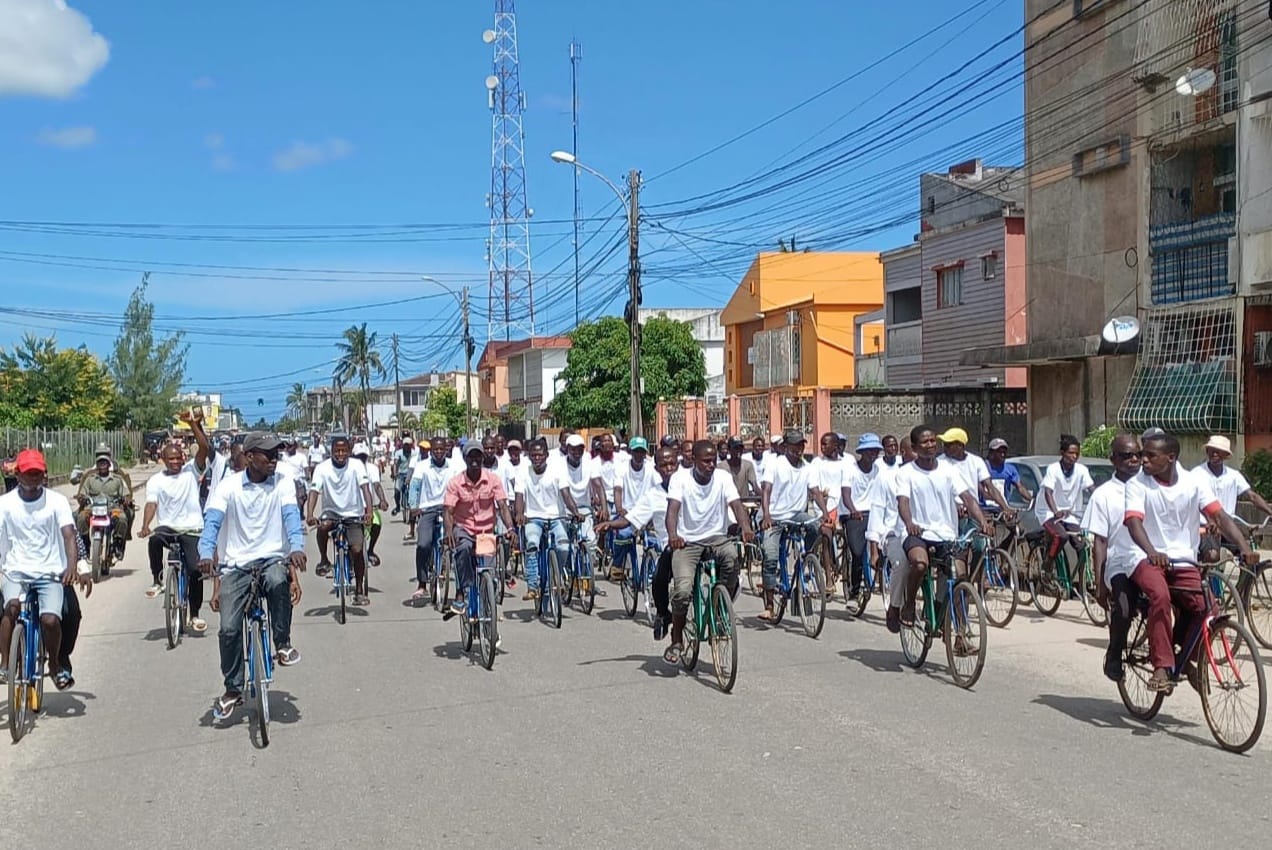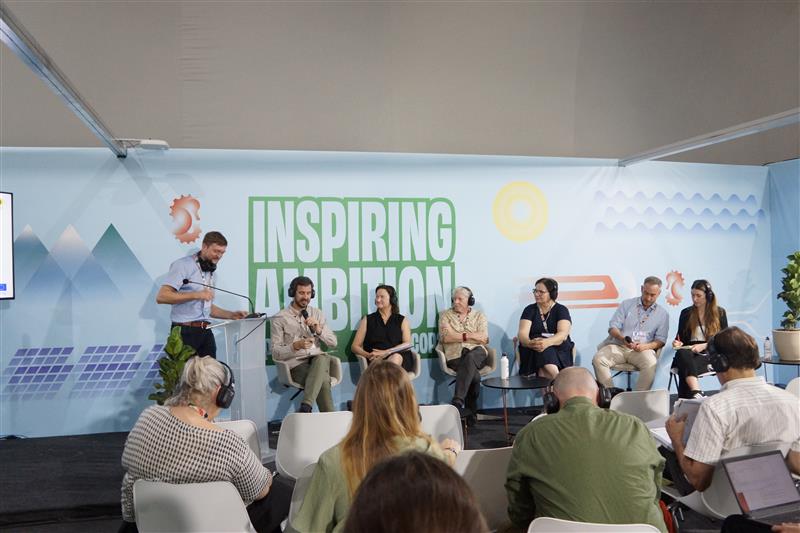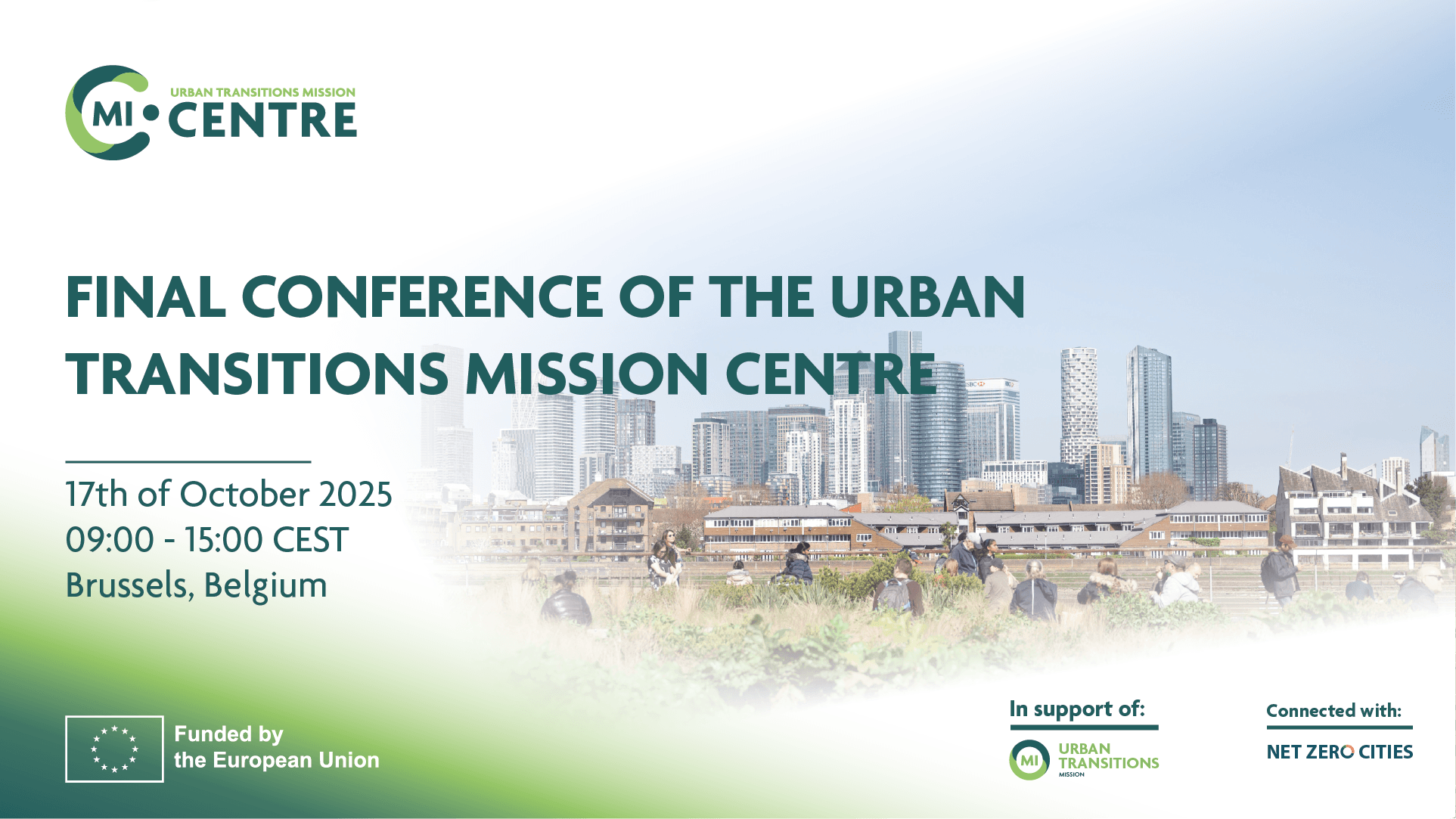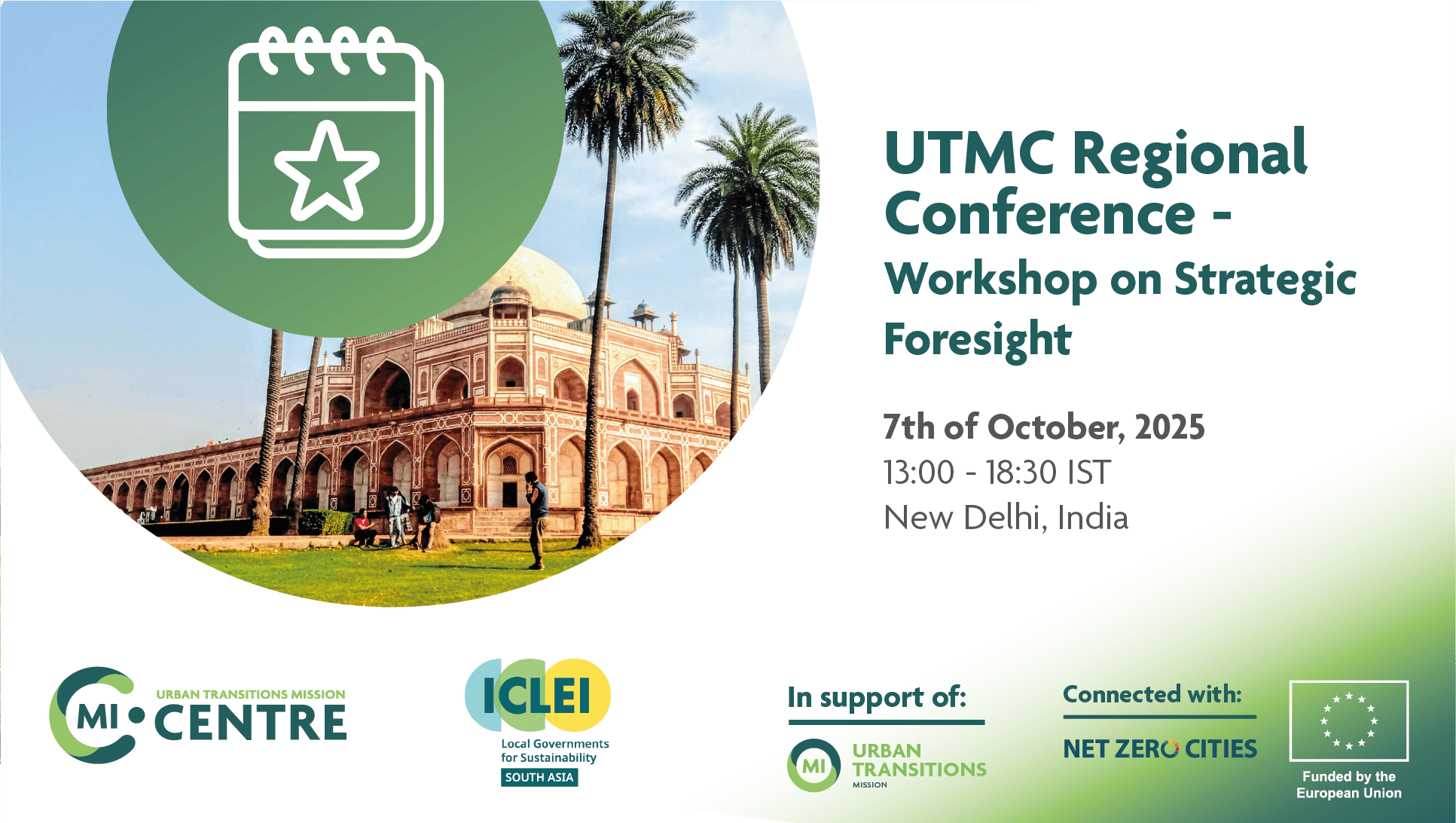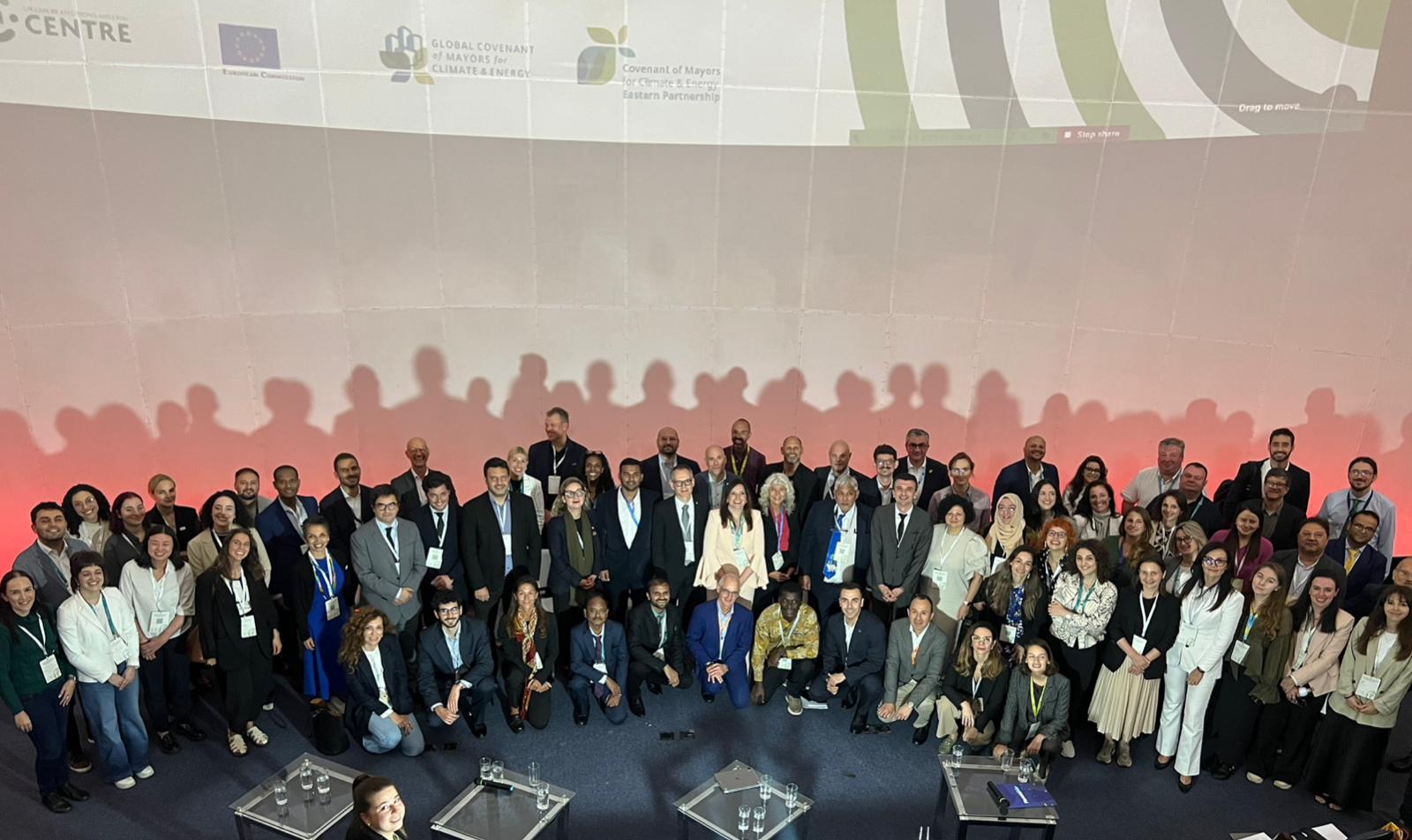On 17 June 2025, the Urban Transitions Mission Centre (UTMC) hosted its Annual Conference in Bonn, supporting the Urban Transitions Mission and in collaboration with Daring Cities 2025. The event brought together city leaders, global experts, and institutional partners to deepen collective learning and accelerate pathways toward climate-neutral, resilient, and people-centred urban transitions.
Designed as a day of meaningful exchange and forward-looking dialogue, the conference highlighted the tools, methodologies, and partnerships that can enable cities to lead the way, supported by robust knowledge sharing, practical financing mechanisms, and inclusive co-creation processes.
Co-creating the UTMC Platform: Tools with Purpose
The second session of the day, a roundtable on “Towards Long-Term Impact”, opened with a guided walkthrough of the UTMC Platform, featuring functionalities such as the Funding Watch, the Financing Helpdesk, and a comprehensive Knowledge Repository.
The session, moderated by Kanak Gokarn of ICLEI World Secretariat, began with Karel Van Oordt (Eurocities) presenting the overall functionalities of the UTMC Platform. This was followed by Nicola Iezza (Global Covenant of Mayors) who delved into the Funding Watch and Financing Helpdesk features, highlighting how they can support cities in navigating complex funding landscapes. To ground the discussion in real-world needs, Andrada Barață (European Network of Living Labs) opened the floor to participants, inviting reflections on the relevance and usability of the platform and whether its current structure meets the expectations of urban practitioners.
Participants acknowledged the value of targeted support tools, particularly those that demystify complex funding landscapes. At the same time, participants voiced caution about adding “social” components such as messaging or interactive walls, which risk duplicating features already available through other platforms. The key insight? Digital tools must be purpose-driven, low-friction, and anchored in real-world urban practice.
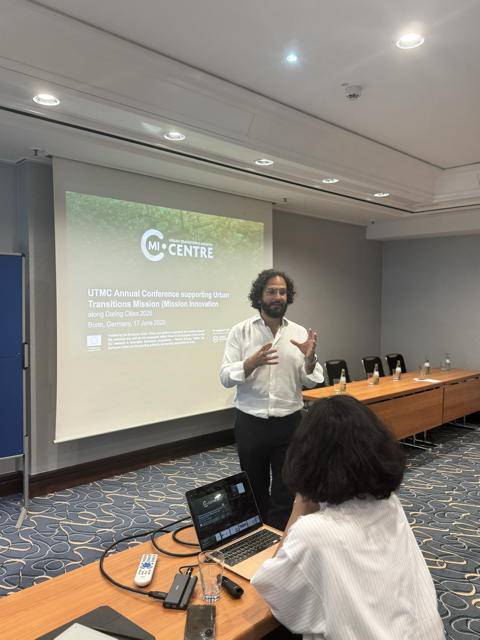
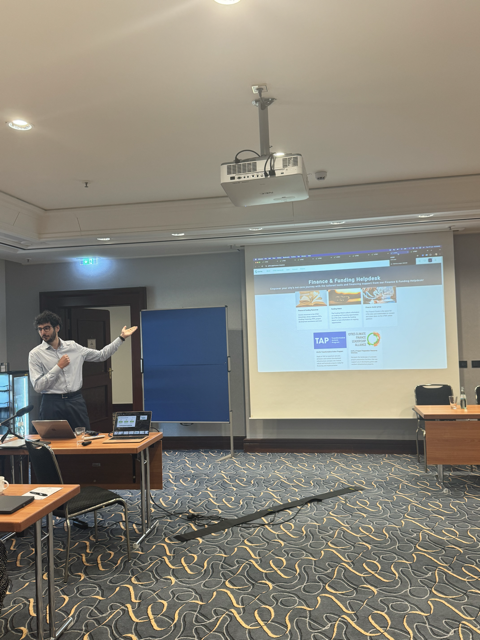
Trends in Urban Transitions: Integration, Inclusion and Innovation
Session III, moderated by Elli Tzatzanis-Stepanovic, Coordinator of the Urban Transitions Mission Centre at FFG, brought together an expert panel to explore the key transitions cities are facing in 2025 and beyond, from energy and digitalisation to urban innovation and financing.
Giorgia Rambelli, Director of the Urban Transitions Mission, opened the discussion by highlighting a major challenge shared by many cities: moving from planning to implementation. “Many cities already have ambitious transition strategies, but the struggle lies in connecting plans to real investment and action on the ground,” she explained. Drawing on experiences from the UTM global cohort, she emphasised the need for systemic integration, where solutions in energy, mobility, cooling, and housing reinforce each other and improve local quality of life. She pointed to Kisumu (Kenya) as a standout example: originally committed to 100% renewable energy, the city is now embedding that vision into local industries, transport, and job creation through a holistic, place-based approach.
Giorgia also underscored a growing trend in digital tools, such as digital twins and geospatial analytics, which can help cities simulate and optimise transitions. However, she warned that these tools remain expensive and often inaccessible to smaller cities. “Digital innovation must be accompanied by local capacity and equitable access,” she noted, reinforcing the need for funding mechanisms that make smart tools viable at all scales.
Iasonas Sioutis, Scientific Project Manager of the ELABORATOR Project at the National Technical University of Athens, offered insights from 12 European cities working together through a Living Lab framework. He described how the project began by pairing more advanced cities with less experienced ones to co-develop custom urban interventions. Surprisingly, knowledge flowed both ways. “We learned that smaller or less resourced cities often bring powerful local insights that challenge assumptions,” he said.
Through a cycle of citizen engagement, data collection, and co-design, the cities tested digital solutions tailored to local needs, from bike lane redesigns to interactive street simulations. Iasonas stressed the importance of inclusive innovation: “You can’t just design in a lab, you have to build with people, including vulnerable groups, children, and those often left out of planning processes.” He shared a compelling example from Sarajevo, where schoolchildren used a gamified Super Mario-style tool to redesign their own neighbourhoods.
Andrea Ramírez, Associate Academic Officer at the United Nations University – Institute for Environment and Human Security (UNU-EHS), brought a deeply human perspective to the conversation. Drawing on her work in Latin America, she reminded the audience that urban transitions start with people, not policies or platforms. “Coalition-building is essential, especially in places where trust in institutions is low,” she said. She called for transitions that are emotionally resonant, not just technically sound: “Data and logic are important, but without stories, without listening to lived experiences, we won’t get to action.”
Andrea also highlighted the urgency of new learning formats, bite-sized, emotionally engaging, and accessible to a broad range of stakeholders, from policymakers to informal community leaders. “If we want to compete with disinformation and digital noise, we need to become better storytellers,” she said, suggesting that transitions must be communicated in ways that are relatable and inspiring, not only technical and abstract.
As the panel closed, speakers converged around a few shared takeaways:
- Trust, inclusivity, and humility are non-negotiable foundations for urban transitions.
- Middle-sized and Global South cities have valuable insights that must be heard.
- And while digital tools and strategies are advancing, their success depends on human connection, political will, and practical adaptability.
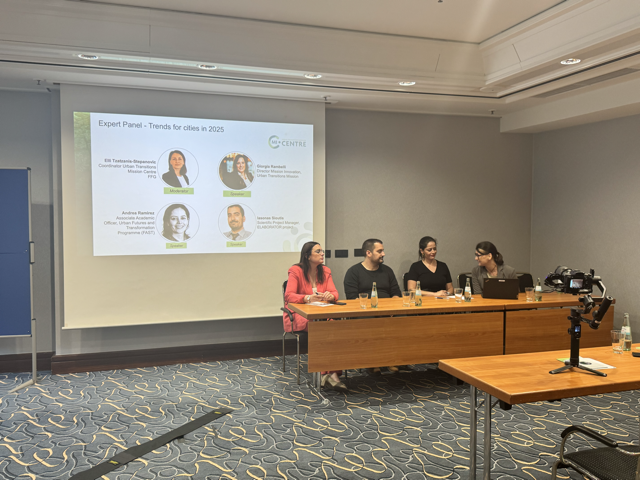
International Collaboration on Energy Efficiency: Bridging Practice and Policy
The final session of the day explored the state of international collaboration on energy efficiency, framed as a fishbowl roundtable moderated by Bard Rama, International Component Coordinator at the EU Covenant of Mayors. The discussion brought together city officials, programme coordinators, and global experts to examine the practical, political, and technical barriers cities face—and how collaborative frameworks can support local progress.
From a city perspective, Roman Mendle, Head of the Munich Climate Mission, offered a nuanced reflection on the limits and opportunities of peer exchange. While Munich is deeply involved in multiple EU-funded platforms and initiatives, he cautioned that cities must be strategic about where to invest their limited time and capacity. Drawing on his experience designing city exchange programmes, he shared a framework for evaluating impact: ensure mutual benefit, embed learnings internally, and adapt insights to fit the local context. “You can’t just shake a bunch of cities in a room and expect results,” he noted. “Meaningful exchange takes structure, time, and purpose.”
Zooming out to the international level, Antje Wemhöner, Programme Manager at GIZ for the Partnership for Energy Efficiency in Buildings (PEEB), explained how her work supports countries in scaling up green buildings. She highlighted the dual-track approach of PEEB: providing concessional finance for construction and retrofitting, while also helping governments strengthen enabling environments through policy, regulation, and capacity building. With global building stock expected to double by 2060, mostly in warmer regions, she stressed the urgency of integrated approaches that combine climate action, affordability, and resilience.
On the digital front, Frank Osterhoff, Coordinator of Germany’s Smart Cities Model Projects at DLR-PT, outlined how more than 90 cities are testing smart energy solutions with long-term support from the German government. These include energy dashboards, open-source software for data management, and digital twins that help simulate infrastructure changes before implementation. He emphasised that for digitalisation to succeed, it must be open, replicable, and backed by political will. “Every city starts with a digital strategy that must be approved by the city council,” he said, underscoring the need for strong governance to support lasting innovation.
Concluding the panel, Rohit Sen, Head of Sustainable Energy at ICLEI World Secretariat, shared global patterns observed across ICLEI’s 2,500-member network. Despite vastly different contexts, he noted that many cities, especially in the Global South, face shared systemic barriers: lack of capacity, weak interdepartmental coordination, insufficient access to finance, and unreliable data. “Even in countries with advanced planning systems, it can take years to collect usable data,” he pointed out. While technical solutions must be locally adapted, he stressed that the enabling conditions, like data governance and finance access, are universally critical.
Together, the session painted a clear picture: while energy efficiency challenges vary by region and context, the key to progress lies in well-structured collaboration, locally owned strategies, and robust support systems that empower cities to move from planning to action.
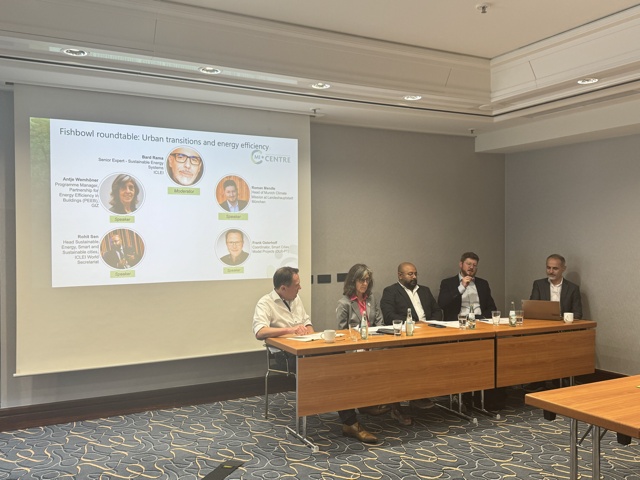
Looking Ahead
From digital innovation and inclusive storytelling to collaborative financing and mutual exchange, the UTMC Annual Conference in Bonn reaffirmed the mission’s core belief: the road to net-zero is not one-size-fits-all, but it is a journey best taken together.
As cities across Europe and the world rise to meet the challenge of climate neutrality, UTMC will continue to serve as a trusted enabler, connecting city leaders, supporting knowledge exchange, and amplifying solutions that are ambitious, people-centred, and ready to scale.
